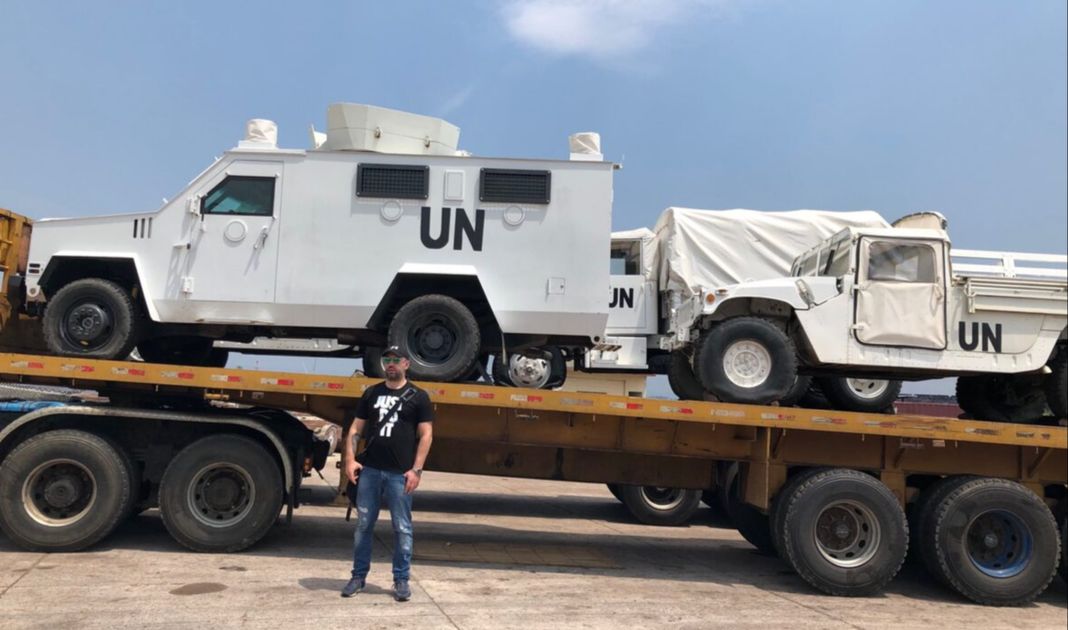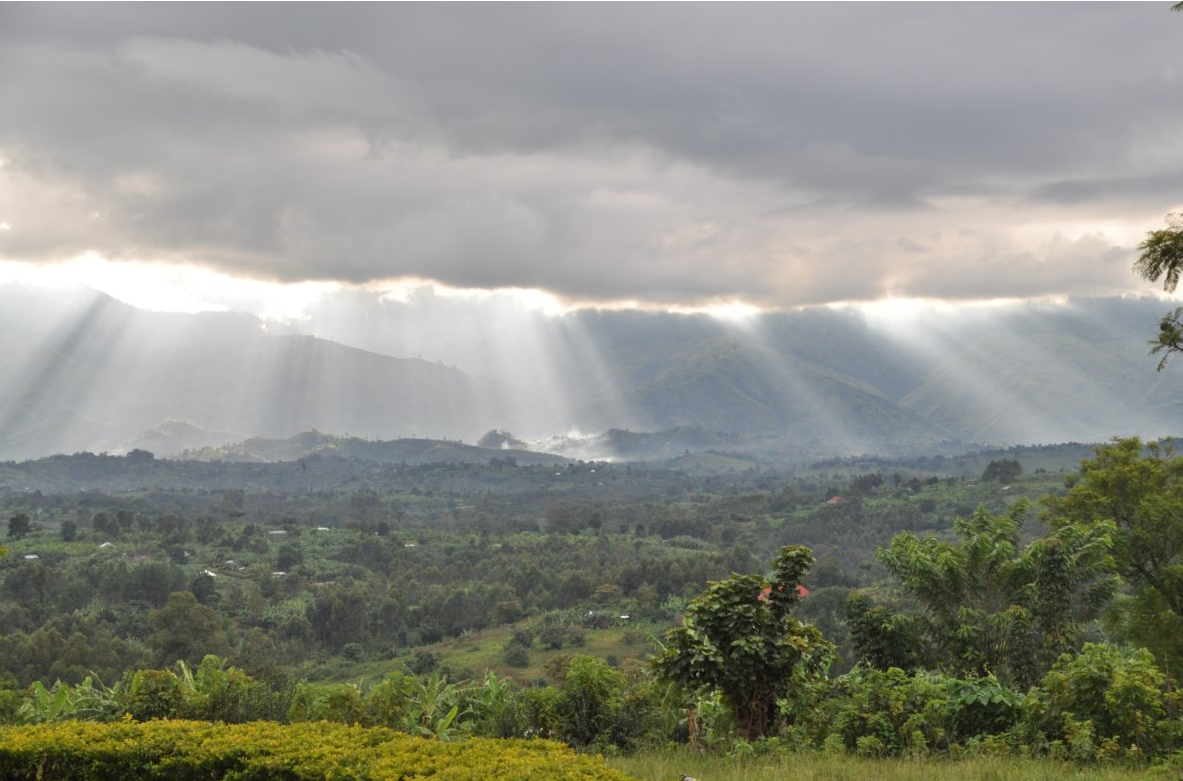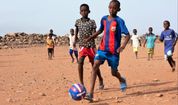Congo

(Photo: author)
Since then, a lot has changed in former Zaire, including the name of the country. Today it is the Democratic Republic of the Congo. For the average Pole, this great country of sub-Saharan Africa may be associated with the novel of our countryman Joseph Conrad – ‘Heart of Darkness’, a brilliant work illustrating human greed and cruelty in the context of the colonial era, which the country experienced painfully. Reading this book in my childhood, I did not think that life would lead me to the Congo River many years later, thanks to some interesting friendship, and would allow me to discover a land of incredible opportunities and possibilities, in which I also see many Polish themes and analogies with our country’s (and the region’s) transformation period of the early 1990s. The dynamic social and economic changes that we underwent at that stage in many respects resemble those taking place in this huge and little-known-in-Poland African country, the second largest on the continent. The receptivity of the market, which currently produces little for its own needs, is large and diverse. International trade is facilitated by a well-functioning banking infrastructure, access to the Atlantic Ocean (with a port in the city of Matadi) and growing consumer awareness and purchasing power of the middle class.
There is dormant and diverse potential in this country. About the largest French-speaking country in Africa, it is said that being one of the main suppliers to the global markets of strategic raw materials such as cobalt, coltan, copper, cassiterite, diamonds, it should be one of the richest in the world. After the collapse of the colonial system and liberation from the Belgian yoke, it seemed that a highly industrialised Congo, which could then compete with South Africa for the title of regional leader, was well on its way to becoming the main actor in the development of the entire continent. The next decades of armed conflict and the dictatorship, first of Mobutu Sese Seko, and then the exceptionally long 17-year-rule of Joseph Kabila did not allow this country, from the heart of Africa, to realise its powerful potential and inspire the necessary trust of international investors. Only in January 2019, i.e. 59 years after the establishment of sovereign statehood, there was the first peaceful transfer of power as a result of elections, which for global business should be the expected green light to expand into this, one of the last large ‘undiscovered’ African markets. Interestingly, and here one of the threads symbolically connecting our countries, one of the main actors of the events of the period mentioned for nearly 60 years was our ‘compatriot’, the son of a Polish Jew, born in 1935 in the Belgian Congo, a certain Leon Lubicz, who served as Prime Minister of Zaire several times.
Over half the country’s area is covered by unexplored tropical forests. Forestry is, after the mining sector, one of the key branches of the economy. However, here too there are many business opportunities and possibilities, as there is practically no element of value added or processing. Wood, like virtually everything from this country, leaves it as an unprocessed raw material. However, this element is inevitably beginning to change – an extremely cheap and often surprisingly-skilled workforce, tax incentives for foreign investors (including long-term tax holidays) are beginning to encourage more companies and entrepreneurs to focus boldly on production.
Diamond deposits are estimated at 30 percent of the world’s resources. Coltan deposits necessary for the production of electronics, from which tantalum is produced – even account for 70% of the world’s resources. To illustrate the unimaginable hydro-electric potential, it is enough to mention that only one Inga installation on the Congo River can generate 40,000MW of electricity in the future, i.e. the equivalent of 15 nuclear power plants, which would allow the country to ultimately become the main exporter of electricity in this part of the world. Today, Congo, due to the climate of political stability and newly recognised authorities, recognised by the international community, is absorbing foreign investment, is open to know-how and business partners to develop a potentially key economy for Africa.
The stabilised political situation, a dynamically developing middle-class, an exploding demography, a megalopolis in the form of the capital Kinshasa (12 million inhabitants; projected to grow to 35 million by 2050), and the aforementioned natural resources of the Congo should soon become a magnet for business from a wide spectrum of fields. However, to admit corporations from industries other than mining or oil (because there are plenty of them there), you need to be able to control them. The diversification of the national economy will be one of the main challenges facing Félix Tshisekedi, who, after winning the December elections, surrounded himself with a government of professionals aware of the need for investment and the fight against rampant corruption as a sine qua non condition for the development of the state. This would allow the economy to become independent of the situation on global stock exchanges dictating prices per ton of copper or kilogram of gold. Despite the unimaginable area of arable land, most of the food is still imported, which results in a very underdeveloped agricultural sector. The country also imports mechanical equipment and building materials, mainly from France, China and the USA.
Congo (photo: Jørgen Christian Wind Nielsen, Pixabay)
Congo does not have to be an attractive market reserved exclusively for big players and traditional superpowers. Poles can also find a place for themselves by making serious investments in the private medical services sector, food processing, CO2 offset projects (producing CO2 certificates that will be very important for the competitiveness of Polish large coal-based enterprises and among the leading issuers in the EU), services betting, among a number of others. These opportunities did not escape the first Polish pioneer entrepreneurs aware of the advantage of the first applicant (first-mover advantage). In a market with this specificity and at such a time of development, the need for competent legal services for investments and companies that enter the local market is an essential element.
At this point I have to support myself with hard data. According to the “Doing Business 2018” list presented by the World Bank, the DRC does not look very impressive in terms of favourable conditions for doing business. It is only in the 182nd position (the ranking includes 190 world economies). In the “foreign trade” category, the Democratic Republic of the Congo also pales in comparison to others. Documentation and clearance (as part of import procedures) is estimated at 336 hours, and the costs associated with these procedures are estimated at well over USD 3,000. Documentation and clearance at the border during export procedures lasts an average of 296 hours, and costs are estimated at over USD 2,000. These numbers are amazing. This country is being built. There is huge demand in the field of IT, medicine and all types of engineering and construction know-how. Poland exports to Congo chicken, wheat, pork, used clothing … Looking at the above-mentioned figures, one would think that each company needs help to move efficiently in this difficult market. Such assistance, also legal, as that which was used by foreign companies entering Polish markets in the early 1990s. Because my personal experience convinces me that this is a reality in which it is possible to ‘deliver’.
After this dose of information an explanation is due – of where my law firm and I come up in all this. Eight years ago I met Dominik Ebebenge – half-Polish, half-Congolese. We made friends, he invited me to Congo, to his second homeland. The occasion of this trip was the funeral of his grandfather, who was one of the participants in the history of Congolese independence and the leader of a large tribe. Dominik, being the first-born grandson, inherited responsibility for the fate of his relatives and great land covered with equatorial forests. He was my guide, advisor and mentor, allowing me to understand the mechanisms in force in this part of Africa. His presence in this process allowed us to open many doors and give our idea of rigour of action on the spot. Years later, in a new, better political reality and business climate, we are well and openly welcomed there. This is my feeling after many visits to the Congo, dozens of high-level political and business meetings in Kinshasa or Kisangani, but also here in Europe, where in Paris, Geneva, Brussels and London many powerful Congolese elite have their footholds.
Today I understand how this system works. Congo now appears as a blank slate on which you can write something in your own way. That is why we want to build a bridge between a maturing Poland with an appetite for expansion into African markets, and perhaps the most exciting and undiscovered market from our perspective – the DRC. For proud Congolese, mentally, cooperation with Polish business is more attractive than with the business of ‘old’ Europe marked by the stigma of the past, or the completely culturally-foreign Chinese. It is our history and the ability to move in times of dynamic change – which is after all our national strength – which can be an important competitive advantage. The challenge for Polish business remains to be bolder to look in this direction and start to provide a good alternative for local business partners. And times have never been better.
Autor
Bogusław Leśnodorski
Legal Advisor / Managing Partner
He specializes in leading corporate, investment and privatization projects. Managing and founding partner of the LSW law firm, with which he has been tied from the beginning of his professional career. He manages the merger and acquisition team and the team in charge of the Stock Market. He has worked for, among others, individuals representing the heavy industry and the mining industry, the building and real estate sectors, the sport and the world of media and telecommunication.
Leśnodorski is a member of the Polish Business Council.
Graduate of the Warsaw University's Law Department. After founding LSW, he finished his legal adviser training (2004) and MBA studies at IESE Business School - Advanced Management (2008).
Known in legal circles for his love of demanding sports disciplines, such as extreme skiing, motocross, jet skiing, mountain biking. Passionate about football, he has been President of the Legia Warszawa football club since December 2012.







Trwa ładowanie...